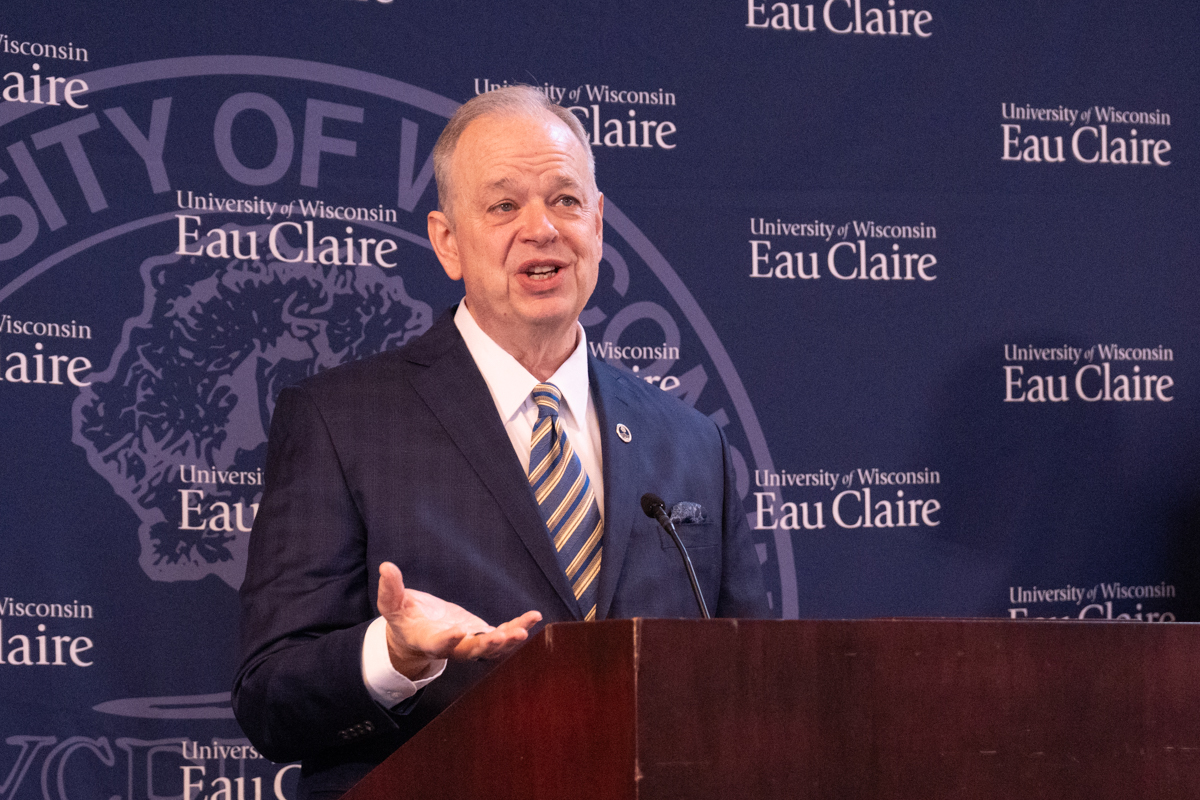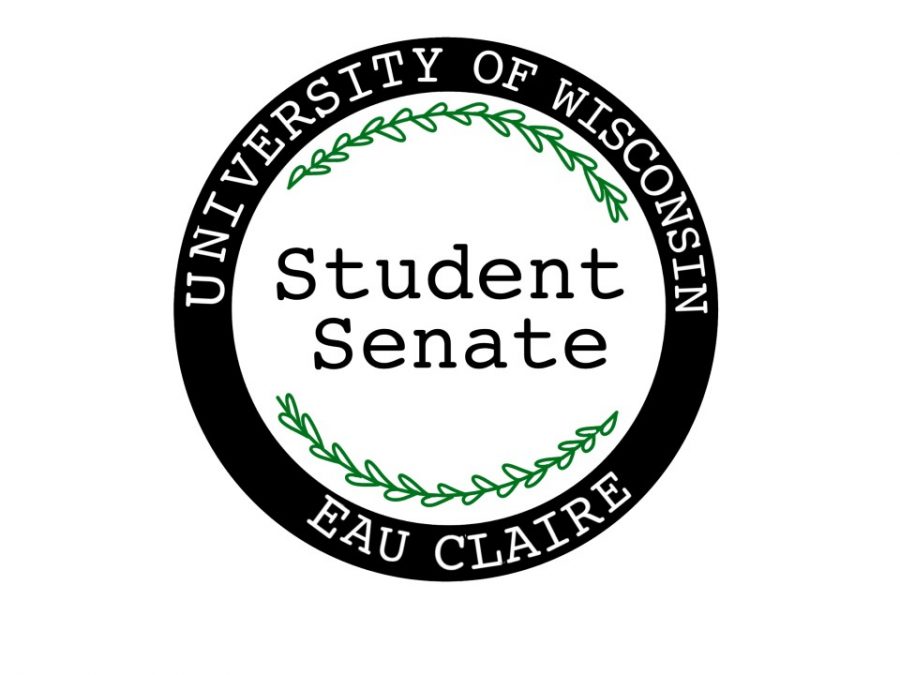Student Senate will vote on nearly $1.7 million in new programs covered by Blugold Commitment differential tuition hikes tonight.
The Blugold Commitment is an additional fee on top of tuition. Blugold commitment tuition increases were phased in over four years. As part of the four-year increase, students paid $300 more this semester through the Blugold Commitment. Next year, the final part of the gradual $1200 increase will be paid by students.
Most of the more than $13 million generated by the Blugold Commitment is already accounted for, due to budget commitments in the previous year.
“It’s really going to do three things: ensure affordable access, preserve, expand high-impact classes at Eau Claire and produce more globally competitive students,” Treasurer Tyrel Zich said.
Students who receive financial aid will not pay the full $1,200 base tuition increase – 40 percent of the Blugold Commitment budget is set aside for students who receive financial aid.
“I’m very interested in studying abroad and it’s really cool to have programs like that for kids that may not be able to afford it,” freshman Kyle Offman said.
The Funding and Analysis Committee reviews program applications and decides how to distribute funds. The committee is made up of four student representatives and four academic affairs representatives. Faculty, staff and organizations submit proposals to the Funding and Analysis Committee to be considered for funding.
Provost Patricia Klein also submits proposals to student committee to be approved for funding.
Programs are funded in one, three and five-year segments and are reviewed periodically throughout those segments. Programs can still be funded after five years, however, if the FAC chooses to continue funding them. Some expenses are probationary expenses for programs that need an annual evaluation in order to continue.
The total Blugold Commitment budget is split into five parts: new programming, the new Provost Initiative, continued programming and the continued provost initiative.
The largest single line item is financial assistance at 35.2 percent of the total $13,245,643 raised by the Blugold Commitment.
In 2009, Student Senate approved the Blugold Commitment. After a revision reducing the amount of tuition increase the bill passed on a 17-15 vote.
In a 2009 survey, students supported the goals of the bill, but were concerned that a $1,500 hike was too much. More students responded to the poll than any other survey, election or referendum nearly 3,700. The amount was later reduced to $1,200.
“I think that students weren’t informed very well where the money was going; once students had seen the great programs that could come out of it, it was positive.” Student Body President, Corydon Fish, Student Body President, said.
The Funding and Analysis Committee set aside most of the new money for immersion programming. Immersion programming includes school sponsored travel, such as an LGBTQA San Francisco trip and Faculty-led immersion experiences.
“Because we don’t get enough money from the state to do a LGBQTA trip to San Francisco, or any of these programs, we need to find the money from somewhere else,” Zich said. ”It is important to understand that these are opportunities that wouldn’t be available.”
Provost Patricia Klein also submits a spending proposal to the Funding and Analysis Committee. New provost initiative accounts for 7.1 percent of the total Blugold Commitment spending.
Part of the new Provost money will create freshman-only classes, student mentors and college career planning tools.
“We are able to use partner programs such as living learning communities and peer mentoring programs we funded through the Blugold Commitment to help freshmen become more accommodated with campus,” Fish said.
Provost funds will provide more guidance for sophomores picking majors. Sophomores run the highest risk of not returning to Eau Claire for junior year.
In 2010, the UW-System Board of Regents approved the Blugold Commitment. Next year, Regents will do an audit of the success of the Commitment. Fish has no major concerns about the future of the Commitment. Student oversight and involvement has been the key to its success, he said.






